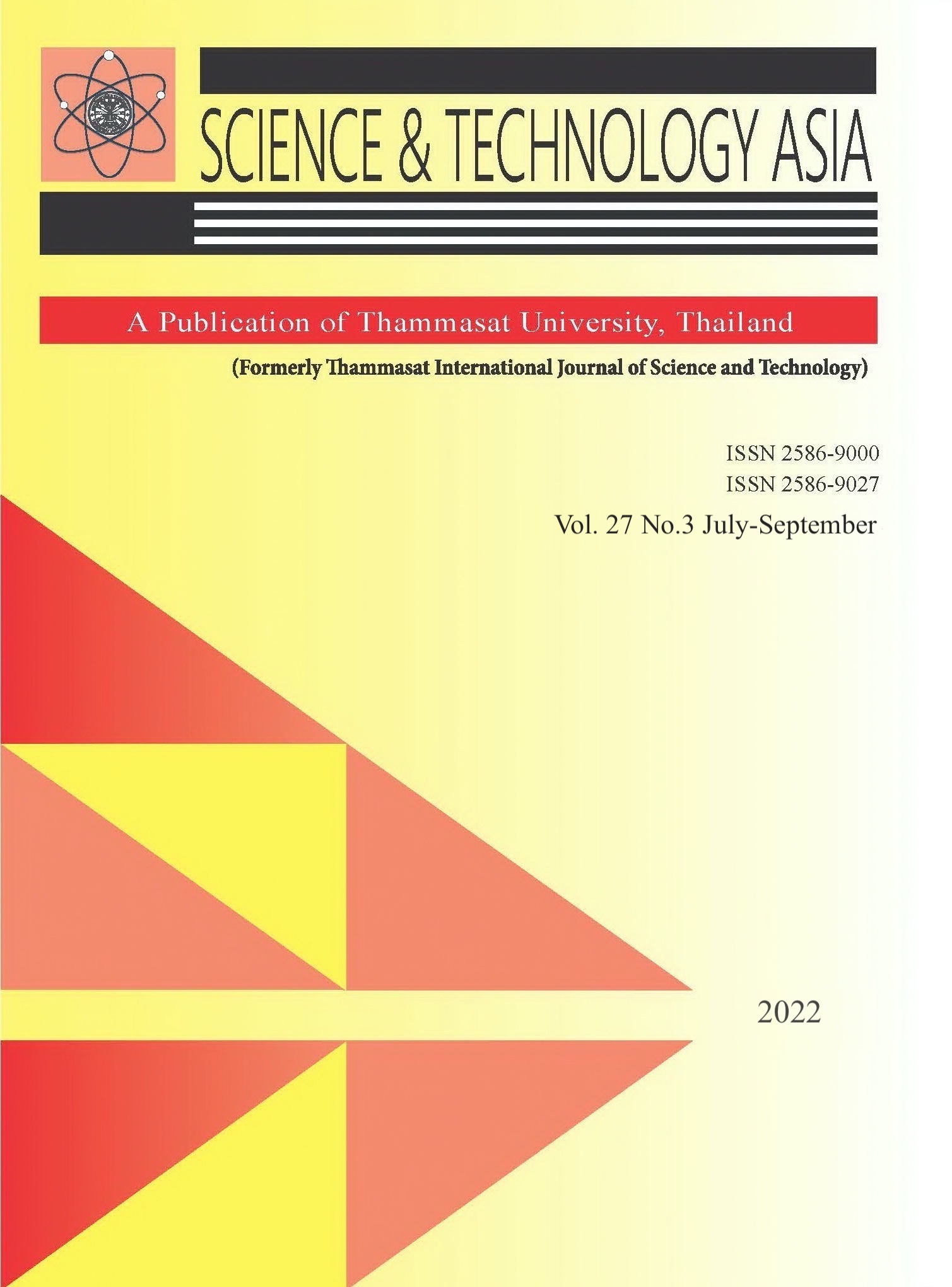Reducing Acrylamide in Roasted Coffee Beans by L-Asparaginase Using Ultrasound
Main Article Content
Abstract
Coffee is a popular drink in many countries in the world. However, long exposure to acrylamide, a chemical generated via Maillard reaction in the coffee roasting process, has been associated with health impacts. In our work, Coffea robusta beans were treated with L-asparaginase under ultrasound to investigate the effects of L-asparaginase concentration, pH, temperature and immersion time on the acrylamide mitigation in roasted coffee. The effects of parameters were evaluated by measuring the UV-Vis spectra of sample solutions containing acrylamide. Treatment of green coffee beans with a solution of 3.0 IU/mL asparaginase at 37 °C, pH 7.3 for 30 min led to a 42% and 14% reduction of acrylamide in the final product compared to reference samples R7 and C0, respectively. Furthermore, material with initial moisture content of 5.5% resulted in an acrylamide reduction of 47.9% and 22.7% compared to R7 and C0. Enzyme-treated ground coffee gave no difference in sensory evaluation compared to the regular roasted product.
Article Details

This work is licensed under a Creative Commons Attribution-NonCommercial-NoDerivatives 4.0 International License.


